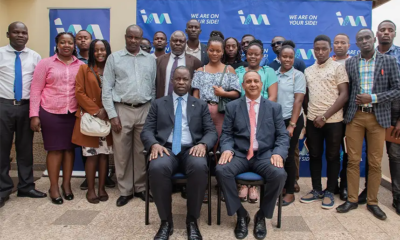The Uganda Revenue Authority (URA) has set a Shs32bn revenue target. This ambitious goal aims to enhance Uganda’s economic stability.
URA’s Ambitious Target
The URA’s decision to set this target reflects its commitment to improving tax collection. By aiming for Shs32bn, URA plans to address budget deficits and fund essential services.
Strategies to Achieve the Target
To reach this goal, URA will implement various strategies. These include enhancing tax compliance, improving technology, and increasing taxpayer education. These measures are expected to boost revenue collection significantly.
Enhancing Tax Compliance
Improving tax compliance is crucial. URA will focus on ensuring that all eligible taxpayers meet their obligations. This approach includes stricter enforcement and penalties for non-compliance.
Leveraging Technology
Technology plays a key role in URA’s strategy. By adopting advanced systems, URA aims to streamline tax processes. This will make it easier for taxpayers to comply and reduce instances of tax evasion.
Increasing Taxpayer Education
Educating taxpayers is another priority. URA plans to launch campaigns to raise awareness about tax responsibilities. Informed taxpayers are more likely to comply, contributing to the revenue target.
Economic Implications
Achieving the Shs32bn target will have significant economic implications. It will provide the government with the necessary funds to support public services. This, in turn, can lead to improved infrastructure, healthcare, and education.
Challenges Ahead
While the target is ambitious, it is not without challenges. URA must address issues such as tax evasion and corruption. Additionally, economic fluctuations can impact revenue collection efforts.
In conclusion , URA’s Shs32bn revenue target is a bold move to strengthen Uganda’s economy. Through improved compliance, technology, and education, URA aims to meet this goal. Success in this endeavor will benefit the entire nation, providing the resources needed for development.

























